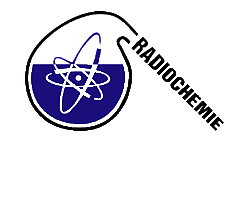Speaker
Mr
Eros Mossini
(Politecnico di Milano)
Description
The public acceptance of the nuclear energy depends on many aspects, such as safety, environmental impact and sustainability. In this direction, the Partitioning and Transmutation strategy is crucial for an optimal resources utilization and a preferable radioactive waste management. The removal of Minor Actinides from Spent Nuclear Fuel and their transmutation into short-lived or stable isotopes would reduce the long-term radiotoxicity and the isolation time enabling a safer storage of the remaining waste in dedicated repository. In order to perform an effective burning of Actinides, it is necessary to separate them from the rest of the elements present in the spent fuel, in particular from Lanthanides. In the last decades several hydrometallurgical processes based on liquid-liquid extraction have been proposed for this challenging task, even though the radiolytic degradation of the phases, mainly due to alpha-emitters present in the process streams, still needs to be completely understood. It is known from literature that most of the radiation damage falls on the diluent and, only indirectly, on the ligands. Therefore, it is paramount to study the effects of radiolysis on the diluents, in order to evaluate the changes of both the separation performances and the fluid dynamical properties of the extracting system, as well as to hypothesize the radiolytic degradation paths of the ligands.
The experimental work here presented aims to study the effects of radiation on some physico-chemical properties of capital interest for the application within the newest and promising i-SANEX (innovative Selective ActiNides EXtraction) and GANEX (Grouped ActiNides EXtraction) processes, where the selective An separation is performed by hydrophilic extractants in acidic aqueous solutions. Therefore, 0.25 - 1M HNO3 solutions were prepared, stored in sealed glass vials, kept at 4°C in the dark and irradiated at total absorbed doses ranging from 25 to 200 kGy using a 60Co source with a dose rate of 2.5 kGy/h. The dose rate and the total absorbed doses considered are consistent with the annual use of the solvent in the reprocessing of spent LWR/FR fuels. Density, viscosity and acidity of the solutions were measured before and after irradiation. The preliminary results suggest that the macroscopic physico-chemical properties of the irradiated solutions do not show relevant modifications with increasing the total absorbed dose in the range considered. Thus, no significant modifications in the fluid dynamical behaviour of the extracting systems are expected. This result is very encouraging from the viewpoint of the industrial-scale development. Furthermore, irradiated solutions were analysed by UV-vis spectrophotometry to assess variations of the nitrate anion concentration and by RAMAN spectroscopy to identify changes in the spectra possibly related to the radiation-induced degradation at molecular level.
In conclusion, because of the lack of knowledge concerning the effects of radiation on physico-chemical properties of diluted HNO3 solutions, the experimental work presented would contribute to provide physico-chemical data not well-known but necessary for the safe and reliable development of the advanced separative processes.
Primary author
Mr
Eros Mossini
(Politecnico di Milano)
Co-authors
Prof.
Chiara Castiglioni
(Politecnico di Milano)
Dr
Elena Macerata
(Politecnico di Milano)
Dr
Luigi Brambilla
(Politecnico di Milano)
Mr
Marco Giola
(Politecnico di Milano)
Prof.
Mario Mariani
(Politecnico di Milano)

